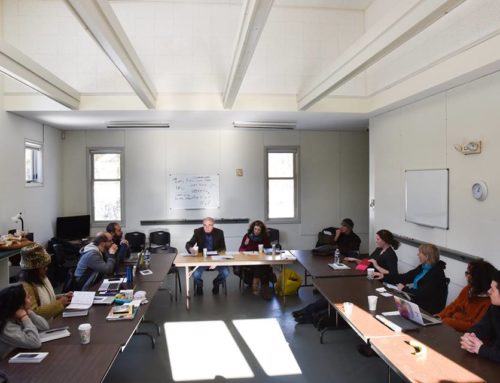Once you think you’ve made all the necessary revisions and your script seems to be really working from start to finish, I suggest you take this rewriting phase one step further before releasing it to the world for the first time.
Put your opus away for a few days. Then, when you set eyes on it again, try to reprogram your mind to become an ultra-sensitive scanning machine that you’re going to feed each page into. Turn yourself into a hypercritical, word-sensitive, fine-tuning device that can pick up even the slightest static of doubt or nag of uncertainty. With this machine, nothing gets through that isn’t absolutely right. When anything stops you, a word choice, the smallest whisper questioning something, have the beeper in your mind go off and stop and fix it. Don’t move on until you can scan back over the same material and sail right through.
The point here is to make your script as good as you can before you solicit responses from others for the first time. That’s the only way you’re going to make genuine progress with it from here on out. If you’re not happy with what you’re asking others to respond to, why waste their time?
Another way of putting this is that in the art of scriptwriting there’s no room for sloppiness or laziness. Anything less than your absolute best effort just doesn’t cut it. And in the end you never get away with it. True professionalism means more than extraordinary talent. It means patience and hard work and being honest with yourself as to how good your writing really is.
John Patrick Shanley (winner of an Oscar, Pulitzer, and Tony with his work) once related to me a struggle he was having with a script: I kept writing, over and over, ten pages for six weeks, seven days a week. I kept writing the same ten pages over and over again, and I just kept saying, “This isn’t true enough, this isn’t true enough.” And I kept on trying to write it more truly. It was one of the most grueling things I’ve ever done. A horribly painful thing to do.
Every writer who has consistent success in the profession takes this as a matter of course. Becoming your own scanning machine (or whatever you want to call it), therefore, is simply one of the essential requirements.
I’m also a playwright and screenwriter, producing partner in my production company Either/Or Films (The Sensation of Sight and Only Daughter) a professional script consultant, and the author of The Playwright’s Process. You can follow me on Twitter @eitherorfilms or @mfastagescreen. I’m also on Facebook at buzzmclaughlinscriptconsulting.







Leave A Comment